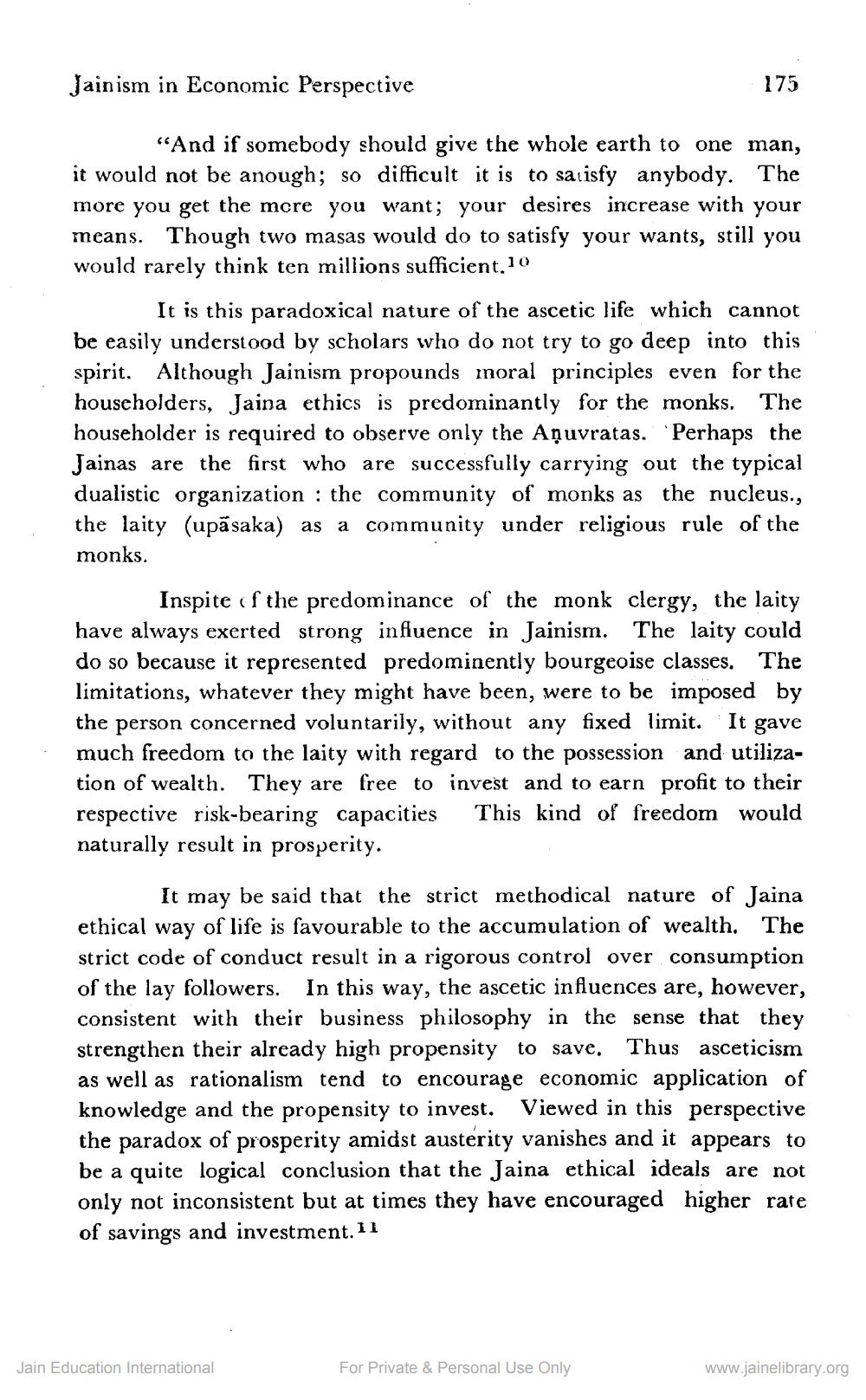________________
Jainism in Economic Perspective
175
“And if somebody should give the whole earth to one man, it would not be anough; so difficult it is to satisfy anybody. The more you get the more you want; your desires increase with your means. Though two masas would do to satisfy your wants, still you would rarely think ten millions sufficient. 10
It is this paradoxical nature of the ascetic life which cannot be easily understood by scholars who do not try to go deep into this spirit. Although Jainism propounds moral principles even for the householders, Jaina ethics is predominantly for the monks. The householder is required to observe only the Aņuvratas. Perhaps the Jainas are the first who are successfully carrying out the typical dualistic organization : the community of monks as the nucleus., the laity (upāsaka) as a community under religious rule of the monks.
Inspite of the predominance of the monk clergy, the laity have always exerted strong influence in Jainism. The laity could do so because it represented predominently bourgeoise classes. The limitations, whatever they might have been, were to be imposed by the person concerned voluntarily, without any fixed limit. It gave much freedom to the laity with regard to the possession and utilization of wealth. They are free to invest and to earn profit to their respective risk-bearing capacities This kind of freedom would naturally result in prosperity.
It may be said that the strict methodical nature of Jaina ethical way of life is favourable to the accumulation of wealth. The strict code of conduct result in a rigorous control over consumption of the lay followers. In this way, the ascetic influences are, however, consistent with their business philosophy in the sense that they strengthen their already high propensity to save. Thus asceticism as well as rationalism tend to encourage economic application of knowledge and the propensity to invest. Viewed in this perspective the paradox of prosperity amidst austerity vanishes and it appears to be a quite logical conclusion that the Jaina ethical ideals are not only not inconsistent but at times they have encouraged higher rate of savings and investment. 11
Jain Education International
For Private & Personal Use Only
www.jainelibrary.org




